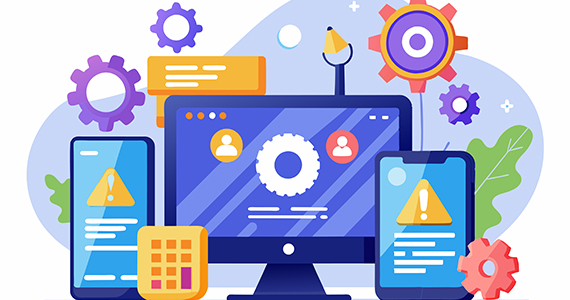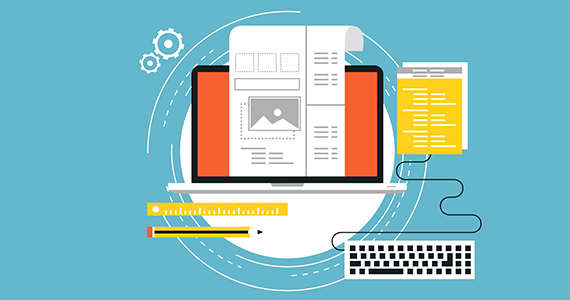Develop exceptional mobile experiences that delight your users and positively impact your bottom line with our Mobile App Development Services.

So, what is Mobile App Development?
Mobile app development involves creating software applications designed to operate on mobile devices like smartphones and tablets. These applications are usually built using platforms such as Unity, Ruby on Rails, Appery, Flutter, and Swiftic. Apps cater to a wide array of user needs, ranging from entertainment and nonprofit initiatives to social networking, lifestyle enhancements, productivity tools, and financial management solutions.
Key Aspects of Mobile App Development
Creating mobile apps is a multifaceted endeavor that requires careful planning and execution to deliver a successful product. Beyond just writing code, mobile app development encompasses several key components:
- User Interface Design: Crafting an intuitive and visually engaging interface that facilitates easy navigation.
- Coding: Developing the software that powers the app’s functionality.
- Testing: Verifying that the app operates as intended and is devoid of bugs and glitches.
- Deployment: Making the app accessible for download on various app stores and platforms.
- Ongoing Maintenance and Updates: Addressing bugs, refining previous versions, and ensuring compatibility with new devices and operating systems.
Certainly! The development of a mobile app involves several detailed steps beyond just coding. These steps include:
- Selecting the Appropriate Development Approach: There are two main paths for mobile app development—native and hybrid. Native apps are created for specific platforms (iOS or Android) using platform-specific languages like Swift for iOS or Java/Kotlin for Android. In contrast, hybrid apps utilize web technologies such as HTML, CSS, and JavaScript, which are then encapsulated within a native app shell. The choice between these approaches depends on factors like budget, timeline, app complexity, and target audience.
- Choosing a Framework: After deciding on the development approach, the next step is selecting the suitable framework. Numerous popular frameworks are available for both native and hybrid app development, including React Native, Xamarin, Flutter, and Ionic.
- Database Design: A mobile app needs a database to store and manage data. Selecting the appropriate database and designing the database schema are essential steps in the development process.
- Backend Development: This involves creating the server-side components of the app, which handle data storage, user authentication, and other essential functions. Choosing the right backend technology stack is crucial for ensuring scalability, security, and performance.
- Integration with Third-Party Services: Most mobile apps rely on external services, such as social media integration, payment gateways, analytics, and push notifications. Seamless and secure integration of these services is a vital aspect of mobile app development.
- Security Measures: Mobile apps are at risk of security issues like data breaches, malware, and hacking. Implementing robust security measures and adhering to industry-standard practices is essential for safeguarding user data and maintaining trust.
Each of these steps, whether related to project development or software construction, requires thorough planning, execution, and testing to ensure the final product meets user needs and expectations while also aligning with your business goals.
Our Deliverables

Source code
The entire collection of coded instructions and scripts produced during this phase, which constitutes the core framework of the software or application.

Web and mobile applications
A functional product or software that showcases its capabilities, facilitating testing and feedback while leaving a lasting impression in the market.

Technical documentation
In-depth documentation that comprises code comments, API references, descriptions of software architecture, and guides for installation or configuration.

Test plan and reports
Extensive testing methodologies that incorporate unit tests, integration tests, and system tests, along with reports that outline the results and highlight any identified bugs or issues.
How much do Mobile App Development Services cost?
The costs associated with custom mobile app development can vary significantly based on the required features and functionalities, as well as the project’s overall scope. At capxcorporation, a typical project ranges from $25,000 to $500,000.
To thoroughly understand and plan the scope of our projects, we begin with a deep dive call with our partners. This initial discussion allows us to provide a detailed timeline and budget estimates, ensuring alignment and agreement among all parties involved. If you’re interested in learning more right away, feel free to check out our pricing and mobile app development cost guide.
capxcorporation Mobile App Development Project Plan
At capxcorporation, we follow a comprehensive methodology for planning, research, and strategy in our mobile app development services. We prioritize meticulous planning to ensure we address the right challenges within the appropriate timelines.
Our process begins with a strategy and research phase, where we gain a deep understanding of your industry, target users, and value proposition. During this phase, we identify the metrics and KPIs that will guide our success, establishing product and brand strategies through extensive user research, usability testing, and competitive analysis. We continuously validate our assumptions throughout this process.
Next, we transition into UX design, followed by visual design, to customize your mobile app’s functionality, aesthetics, and user experience. We start with low-fidelity wireframes, progressing to high-fidelity versions that clearly outline your app’s appearance and functionality.
Finally, we enter the mobile app development stage. Here, we leverage our thorough findings, strategies, and high-fidelity wireframes to build precisely what you envisioned and agreed upon. We develop the front-end and back-end in parallel modules to ensure seamless functionality and efficient development, concluding with comprehensive testing.
The true power of CapX Corporation lies in our people: a highly skilled team of certified IT professionals ready to steer your IT transformation. Our 92% customer-retention rate reflects our ability to equip businesses with the essential tools to stay competitive, secure, and forward-thinking.
